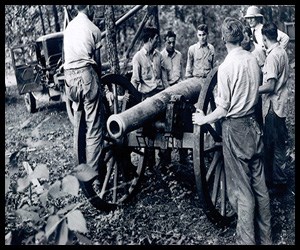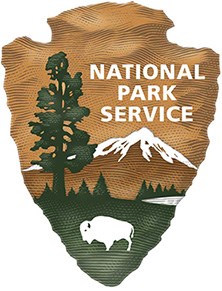During the Great Depression of the 1930s, Kennesaw Mountain National Battlefield Park was the site of Camp Brumby, a Civilian Conservation Corps site (CCC). The Civilian Conservation Corps was created as a part of President Franklin D. Roosevelt's New Deal programs to aid the American public in the recovery from the Great Depression. The federal government provided the men with food, clothing, shelter and tools. There were over 4,000 CCC camps in the then 48 states and the men worked 40 hours a week, earning $30 dollars a month (a lot of money at the time), $25 of which was sent home.
Camp T.M. Brumby housed approximately 200 unmarried men aged 18-25 years old. Each CCC camp, including Brumby, was run by the US Army and the men lived much like soldiers. Campers worked to clear trails and build signs, planted trees and grass in fields, and even offered tours of the museum and the Battlefield. The CCC disbanded with the entrance of the US into World War II in 1941. Most CCC campers immediately entered into the military and were well prepared for military life, because of their time in the CCC.


